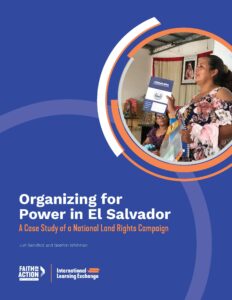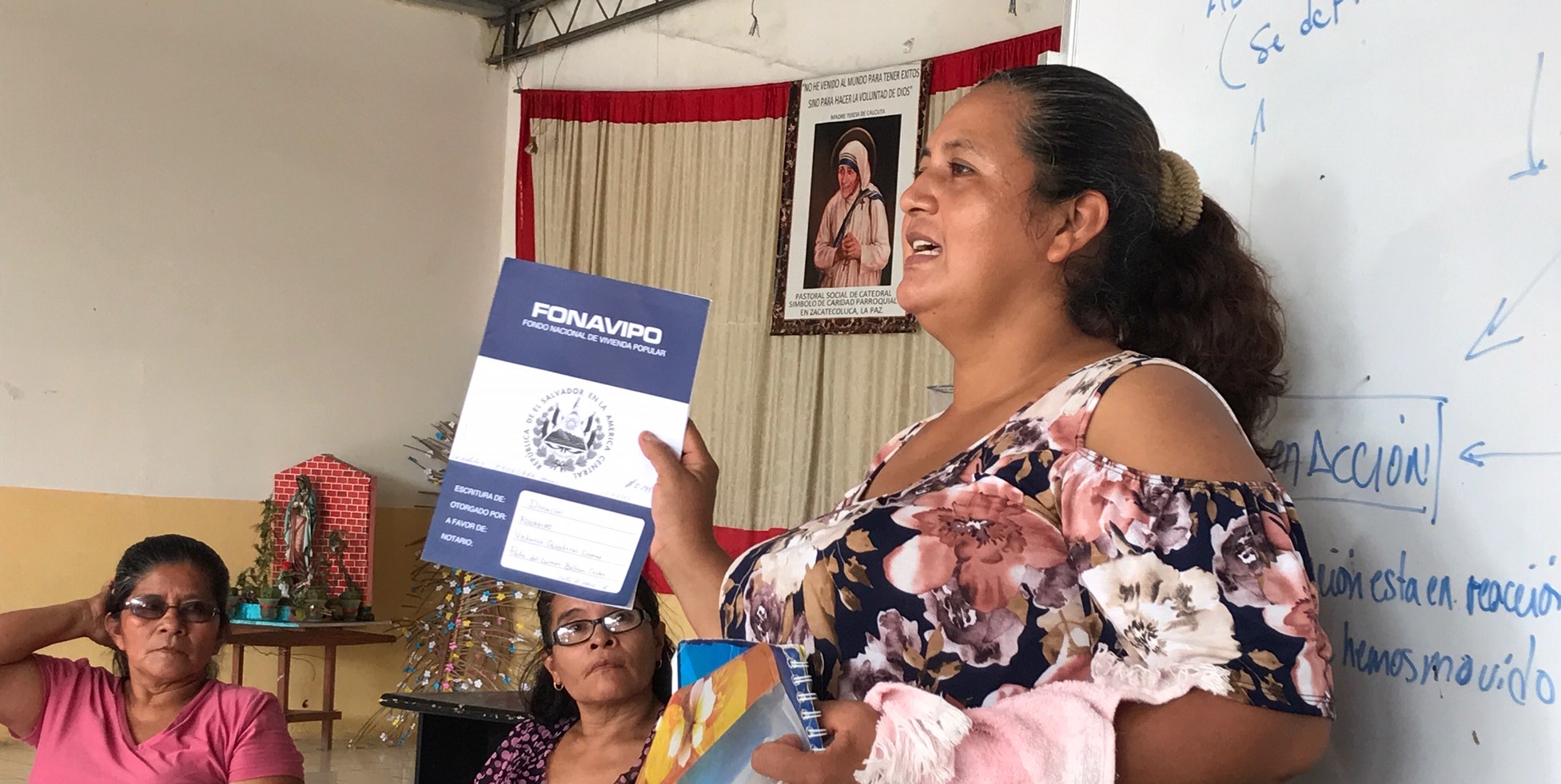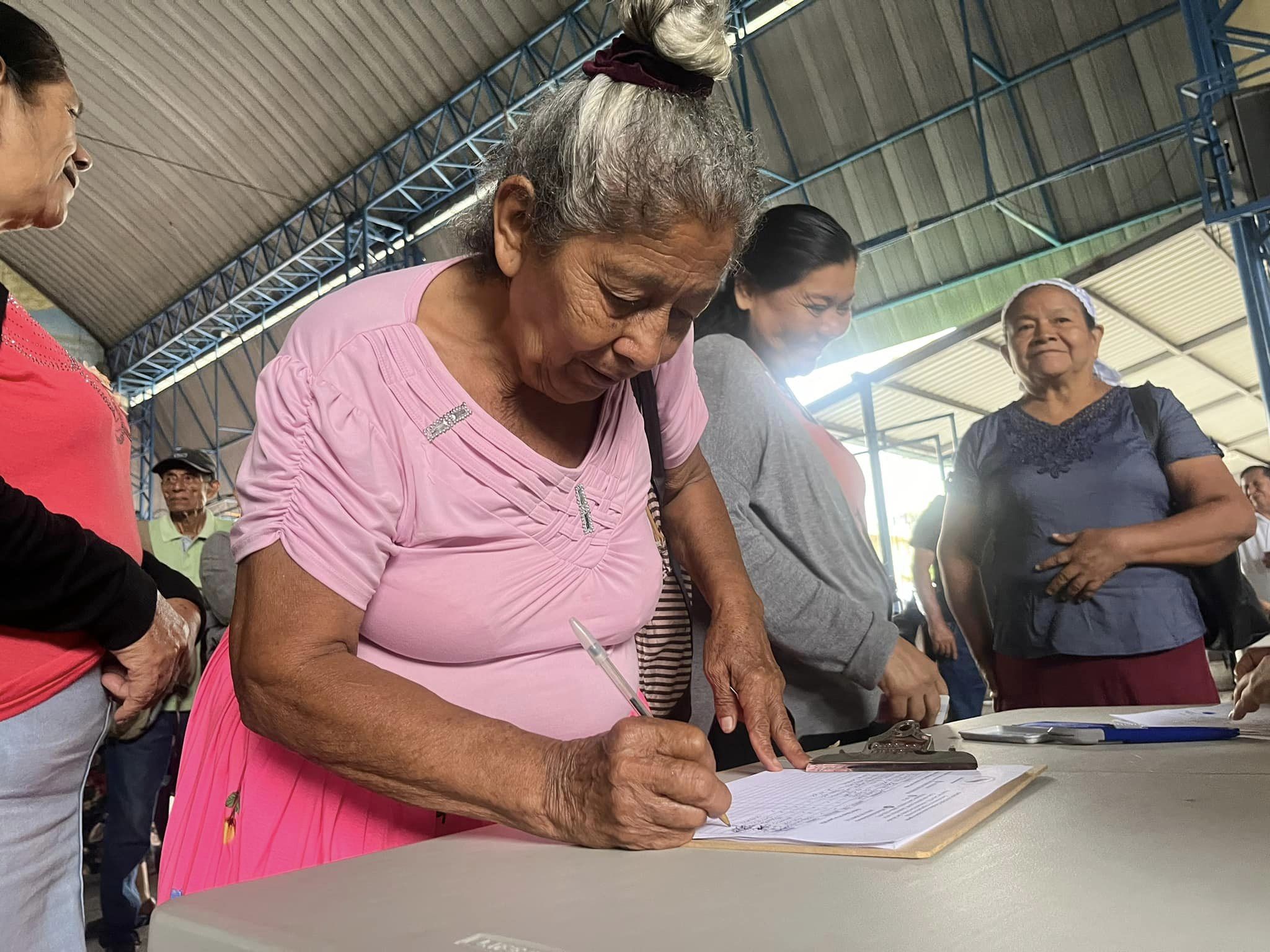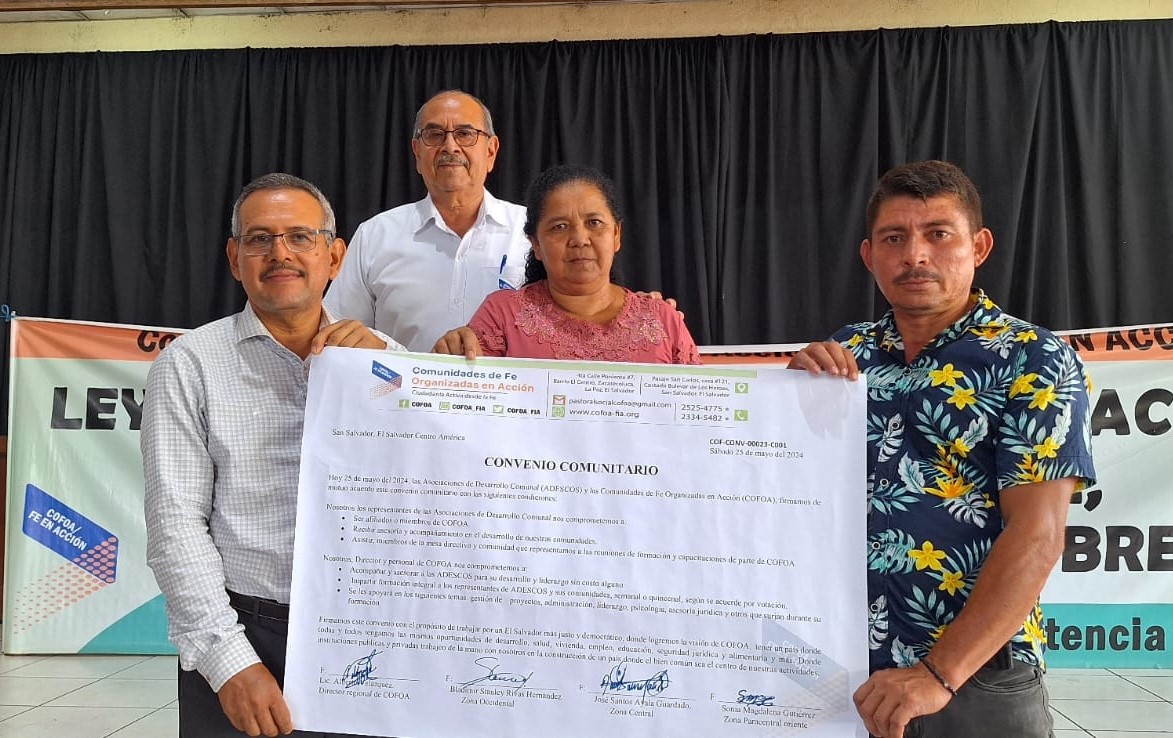Vanessa Acosta turned her lights came on for the first time on June 7. “This changed my life completely,” she said. “Now my kids can do their homework,…
Organizing for Power in El Salvador
Lessons from a National Land Rights Campaign
 Goal of Case Study: This case study looks at the lessons for community organizers from a large-scale national land rights campaign in El Salvador.
Goal of Case Study: This case study looks at the lessons for community organizers from a large-scale national land rights campaign in El Salvador.
Communities of Faith Organizing for Action (COFOA) is a movement of people of faith working for social change in Central America. COFOA’s process of leadership development and organizing enables grassroots leaders to come together, listen to their neighbors, and negotiate policy change with officials and companies. In El Salvador in 2022, more than 3,600 grassroots leaders participate in 120 local organizing committees across the country. COFOA is also beginning new organizing efforts in Guatemala and Honduras.
COFOA’s RENACER Land Rights Campaign has its roots organizing by residents in one community to win title to their land. Their success inspired others, and in 2020, COFOA launched the RENACER campaign to regularize the land ownership of 350,000 families and pave the way for public investment in clean water, electricity, paved roads, green areas, health clinics and schools. Through large public events and seeking support from mayors and deputies, COFOA leaders have pressured Salvador President Nayib Bukele to hold developers accountable to deliver land titles and to invest resources in their communities. As a result, the National Assembly passed land title legislation and the Minister of Housing created a technical table with COFOA participation to resolve titles in the 58 developments participating in RENACER.
LESSONS FOR ORGANIZERS
• There is no shortcut to systematically listening to the concerns of large numbers of people in a community. Building a broad and engaged base requires a commitment to speak to every family, often more than once.
• Start local, but use research actions to connect the dots between community problems and larger policy decisions. Relentlessly ask who else has the same problem and how we can make common cause to build enough power to win.
• Do everything possible, including large public actions and other creative tactics and all forms of media, to get into direct negotiation with key decision-makers
• Good campaigns increase the power of individuals and communities to fight for other improvements to their lives. To move from local to national, design structures for grassroots leaders to come together across communities to strategize and plan together.
• The job of the organizer is not to mobilize people or tell them what to do, but to challenge and support people to join together, overcome the internal and external pressure that keep people from speaking out, build power, and fight for their rights.



